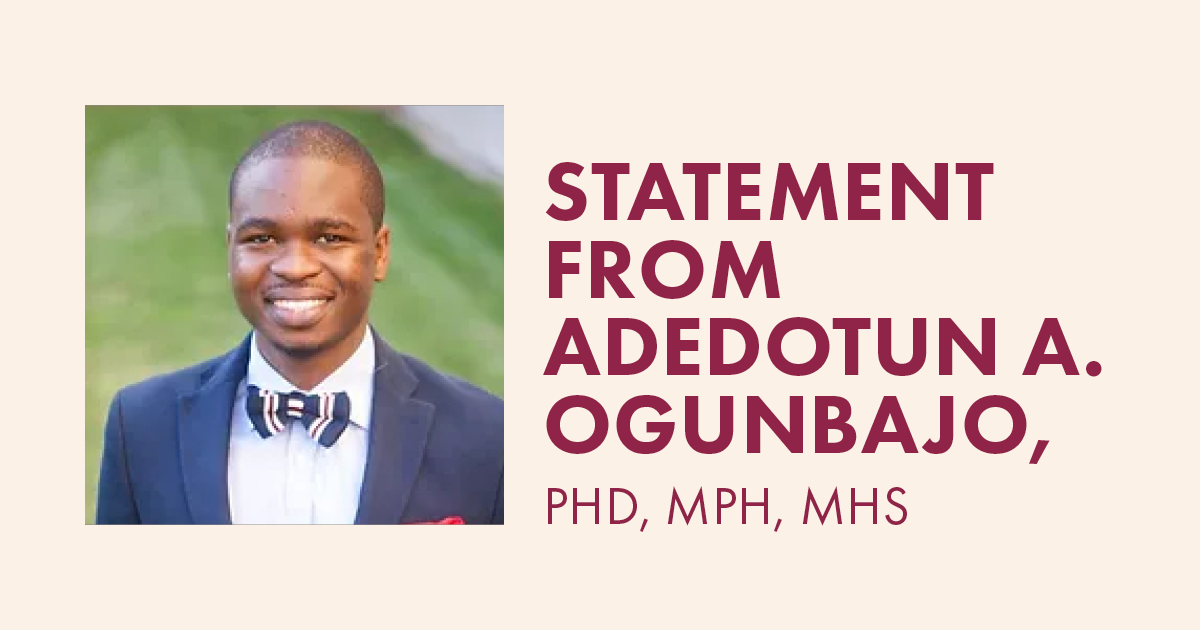The COVID pandemic is personal, very personal. On March 11, 2020, the World Health Organization declared the novel coronavirus a global pandemic. Three weeks later, I successfully defended my doctoral dissertation in public health. Exactly a week after that, a phone call from my father at an odd time signaled trouble. He was calling to let me know my mother’s COVID symptoms had significantly worsened, and the ambulance was on its way to our house. I listened helplessly as my mother gasped for air that her lungs couldn’t find. The three weeks that followed consisted of anguish, anxiety, and angst as her life hung in a balance, aided by a ventilator and the prayers of friends and family, both near and far.
While my mother was one of the lucky ones to pull through, the death of over 6 million people globally is a sobering reminder of the lasting impact of this pandemic. As a behavioral scientist whose research and scholarship centers the lived experiences of Black LGBTQ folks, I am acutely aware of how structural inequality, prejudice, and discrimination drive heath inequity and outcomes in the United States and across the globe. The HIV epidemic and COVID pandemic are real life embodiments of this maddening phenomenon. My hope is that this report serves as a catalyst for real conversations and actions that aim to undo the work of racism, homophobia, and all forms of discrimination.













